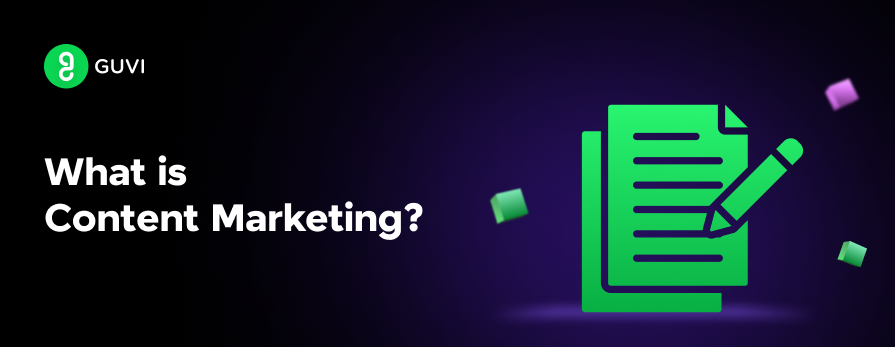
What is Content Marketing: A Comprehensive Guide
Jan 16, 2025 6 Min Read 4942 Views
(Last Updated)
The way businesses connect with their audience has dramatically shifted. Gone are the days when traditional advertising alone could capture consumer attention. Enter content marketing – a strategic approach that has revolutionized how brands engage with their target market.
But what exactly is content marketing, and why has it become such a crucial component of modern marketing strategies? Let’s explore the various types of content marketing, the process involved, its importance, measuring success, and best practices for different industries.
Table of contents
- What is Content Marketing?
- Types of Content Marketing
- The Content Marketing Process
- The Importance of Content Marketing
- Measuring Content Marketing Success
- Content Marketing for Different Industries
- Integrating Content Marketing with Other Marketing Strategies
- The Role of Artificial Intelligence in Content Marketing
- Content Marketing Best Practices
- Conclusion
- FAQs
- What is content marketing?
- How does content marketing differ from traditional advertising?
- What are the key components of a successful content marketing strategy?
- How does content marketing benefit businesses?
- What types of content are used in content marketing?
What is Content Marketing?
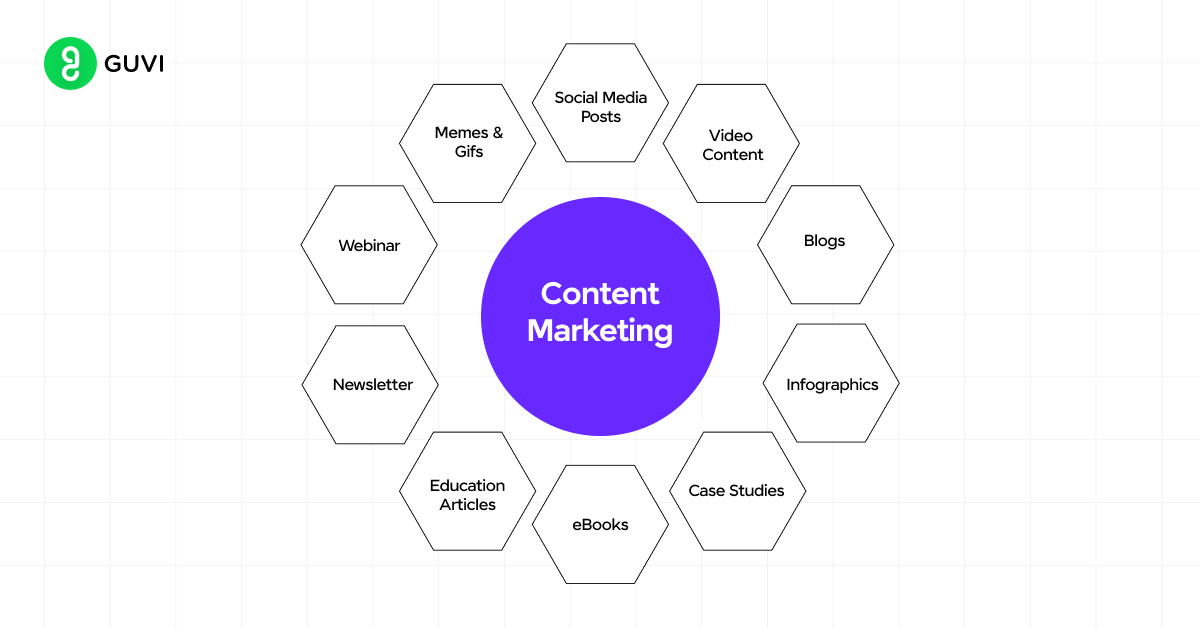
Content marketing is a strategic marketing approach focused on creating and distributing valuable, relevant, and consistent content to attract and retain a clearly defined audience — and, ultimately, to drive profitable customer action. Unlike traditional marketing methods that often interrupt consumers with sales pitches, content marketing aims to provide information that makes the consumer more intelligent or entertains them, driving brand awareness and affinity in the process.
The key principle behind content marketing is the belief that if businesses deliver consistent, ongoing valuable information to buyers, they will ultimately reward us with their business and loyalty. It’s not a new concept – businesses have been using content to disseminate information about their brand and build their reputations for hundreds of years. However, the rise of the internet and digital technologies has propelled content marketing to new heights, making it more critical than ever in the marketing mix.
Types of Content Marketing
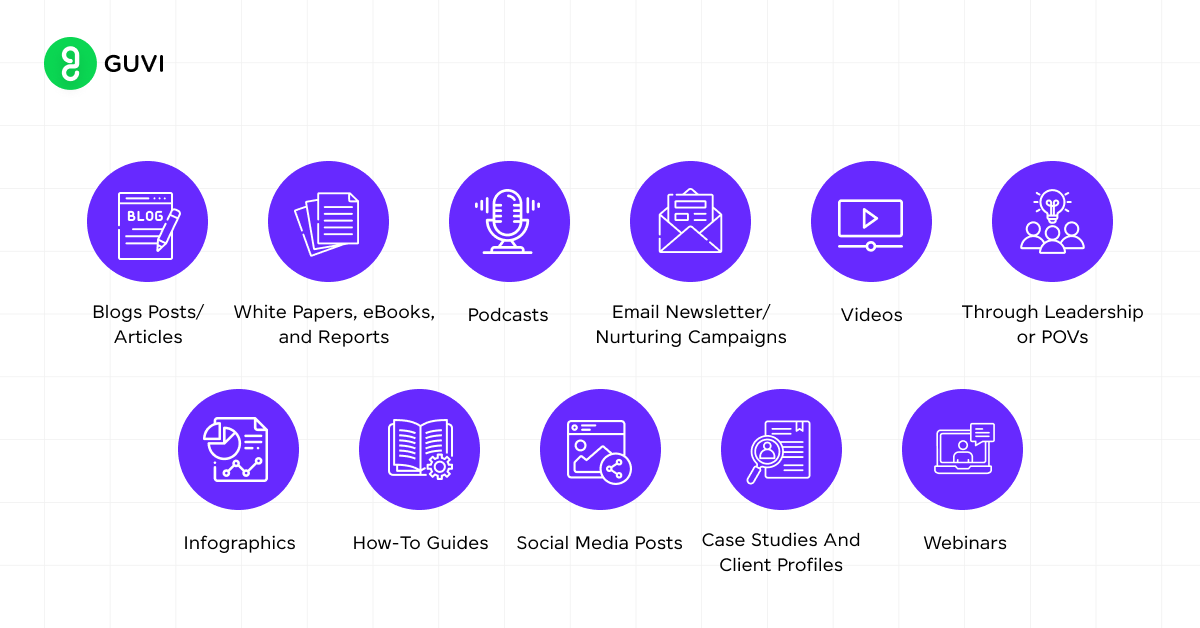
Content marketing isn’t a one-size-fits-all approach. There are various types of content that businesses can leverage, depending on their goals, audience, and resources. Some popular types include:
- Blog Posts: Regular blog posts can help improve SEO, provide valuable information to readers, and establish thought leadership.
- eBooks and Whitepapers: These in-depth resources can be excellent lead magnets, providing comprehensive information on specific topics.
- Infographics: Visual content that presents data or explains complex concepts in an easily digestible format.
- Videos: From explainer videos to product demonstrations, video content can engage audiences in ways text cannot.
- Podcasts: Audio content allows businesses to reach audiences during commutes or other times when reading isn’t practical.
- Social Media Content: Platforms like Instagram, Twitter, and LinkedIn offer opportunities for bite-sized content that can drive engagement.
- Case Studies: Real-world examples of how a product or service has helped customers can be powerful in convincing potential buyers.
- Webinars: Live or recorded presentations that provide in-depth information on specific topics.
- Email Newsletters: Regular emails can keep subscribers informed and engaged with a brand.
The Content Marketing Process
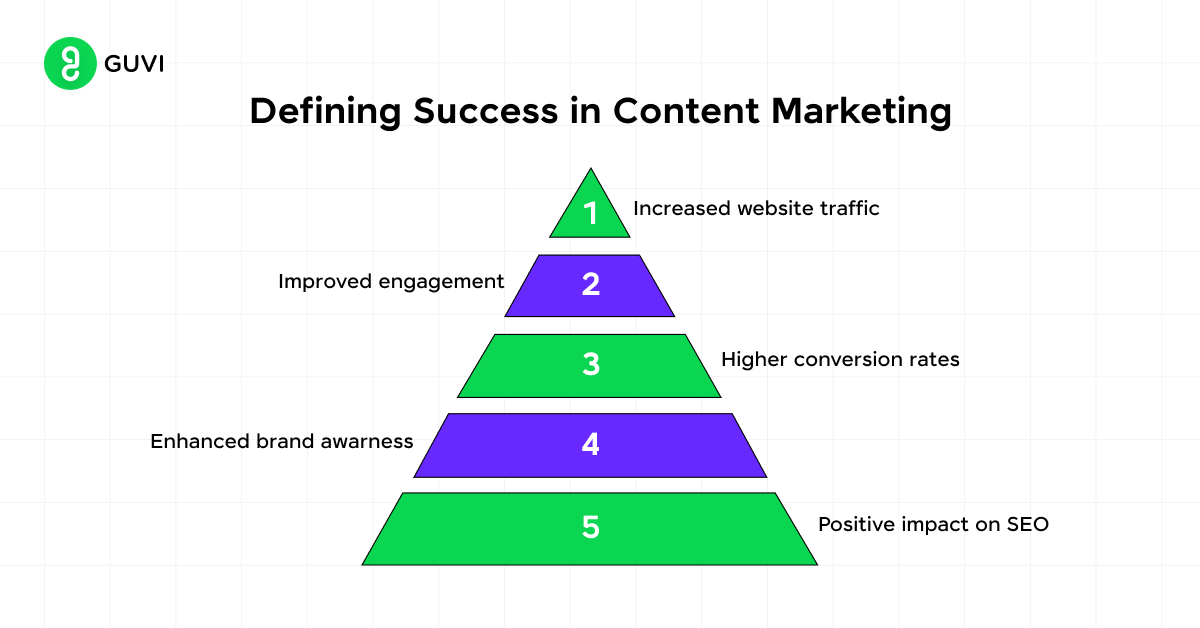
Effective content marketing isn’t about randomly creating and publishing content. It’s a strategic process that involves several key steps:
- Define Your Goals: Before creating any content, it’s crucial to understand what you want to achieve. Are you looking to increase brand awareness, generate leads, or drive sales? Your goals will shape your content strategy.
- Know Your Audience: Understanding your target audience is fundamental to content marketing success. Create buyer personas that detail your ideal customer’s demographics, interests, pain points, and content preferences.
- Content Planning and Creation: Based on your goals and audience insights, plan what types of content you’ll create and develop a content calendar. When creating content, focus on providing value and addressing your audience’s needs and interests.
- Content Distribution: Simply creating great content isn’t enough; you need to get it in front of your audience. Use a mix of owned media (your website, blog, email list), earned media (PR, guest posts), and paid media (social media advertising, sponsored content) to distribute your content.
- Measure and Analyze: Use analytics tools to track the performance of your content. Look at metrics like page views, time on page, social shares, and conversions to understand what’s working and what isn’t.
- Optimize and Iterate: Based on your analysis, continually refine your content strategy. Double down on what’s working and improve or eliminate what isn’t.
The Importance of Content Marketing
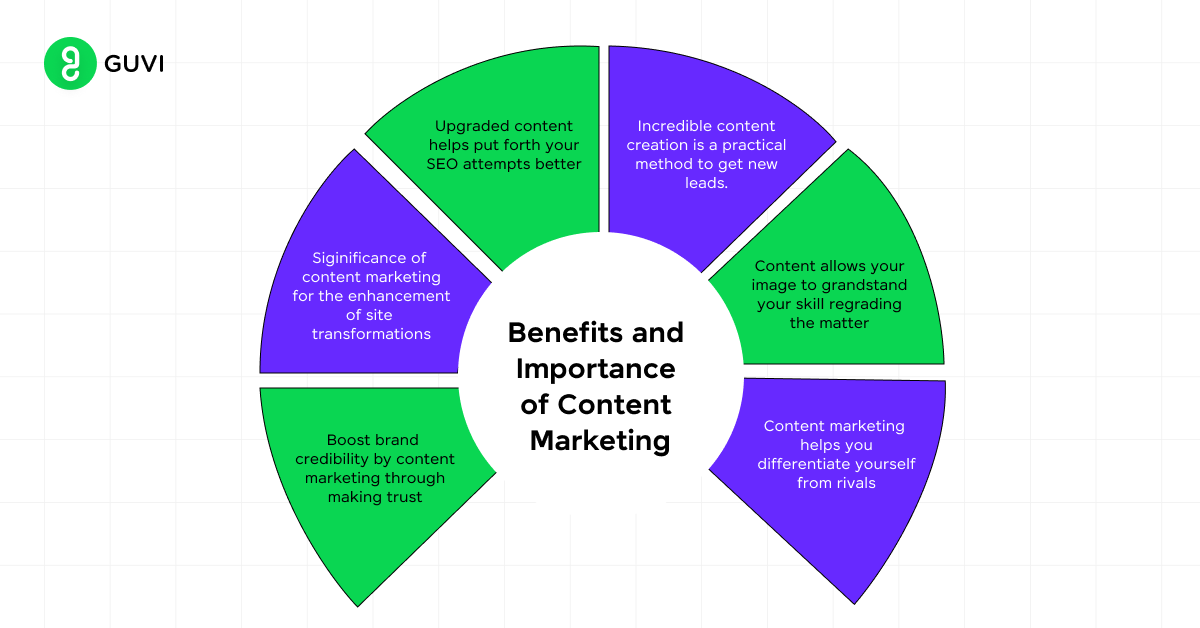
In an era where consumers are bombarded with thousands of marketing messages daily, content marketing stands out by cutting through the noise. Here’s why it’s so important:
- Builds trust and credibility: By providing valuable information without constantly pushing for a sale, brands can establish themselves as thought leaders in their industry, earning the trust and respect of their audience.
- Improves brand awareness: Consistent, high-quality content helps keep a brand top-of-mind for consumers, increasing brand recall when they’re ready to make a purchase.
- Supports other marketing channels: Content fuels SEO efforts, provides material for social media marketing, and can be used in email marketing campaigns.
- Generates leads and conversions: By offering valuable content in exchange for contact information, businesses can generate leads and nurture them toward conversion.
- Cost-effective: While creating high-quality content requires investment, it continues to provide value long after it’s published, making it more cost-effective in the long run compared to paid advertising.
Enrolling in GUVI’s Digital Marketing course can help you become an expert in the digital world, regardless of your level of marketing expertise. Learn the ins and outs of email marketing, social media marketing, content production, SEO, and more from professionals in the field. Through practical projects and real-world case studies, acquire job-ready skills with globally recognized certifications.
Measuring Content Marketing Success
To ensure your content marketing efforts are paying off, it’s crucial to measure and analyze your performance regularly. Here are some key metrics to track:
- Traffic: Monitor the number of visitors to your content, including page views, unique visitors, and time on the page. This gives you an idea of how well your content is attracting an audience.
- Engagement: Look at metrics like social shares, comments, and bounce rates to gauge how well your content resonates with your audience.
- Lead Generation: Track how many leads your content is generating, whether through form submissions, email sign-ups, or content downloads.
- Conversion Rate: Measure the percentage of visitors who take a desired action after consuming your content, such as making a purchase or requesting a demo.
- SEO Performance: Monitor your search engine rankings for target keywords and the amount of organic traffic your content attracts.
- Return on Investment (ROI): While sometimes challenging to measure directly, try to calculate the ROI of your content marketing efforts by comparing the costs of content creation and distribution to the revenue generated from content-driven leads and conversions.
- Brand Awareness: Use surveys or social listening tools to measure changes in brand awareness and sentiment over time.
- Customer Retention: Track how content marketing impacts customer loyalty and retention rates.
Remember, the specific metrics you focus on should align with your overall content marketing goals. Regularly reviewing these metrics will help you refine your strategy and improve your results over time.
Content Marketing for Different Industries
While the principles of content marketing remain consistent across industries, the specific strategies and types of content can vary significantly depending on the sector. Let’s explore how content marketing can be applied in different industries:
- B2B Companies
- Focus on educational content that demonstrates industry expertise
- Use case studies and whitepapers to showcase success stories
- Leverage LinkedIn for professional networking and content distribution
- E-commerce
- Create product guides and comparison content
- Use user-generated content like customer reviews and photos
- Develop gift guides and seasonal content
- Healthcare
- Provide reliable, easy-to-understand health information
- Use patient stories and testimonials
- Create content that addresses common health concerns and questions
- Technology
- Create how-to guides and tutorials for products
- Provide thought leadership content on industry trends
- Use video content to demonstrate product features
- Education
- Develop free online courses or webinars
- Create study guides and educational resources
- Use infographics to present complex information simply
Understanding how content marketing applies to your specific industry can help you create more targeted and effective strategies.
Integrating Content Marketing with Other Marketing Strategies
Content marketing doesn’t exist in a vacuum. To maximize its effectiveness, it should be integrated with other marketing strategies:
- Social Media Marketing: Use social platforms to distribute and promote your content, engage with your audience, and gather feedback.
- Email Marketing: Use your content to nurture leads through email campaigns, providing value at each stage of the customer journey.
- SEO: Optimize your content for search engines to improve visibility and drive organic traffic.
- Paid Advertising: Use paid channels to amplify your best-performing content and reach new audiences.
- Influencer Marketing: Collaborate with influencers to create and distribute content, leveraging their audience and credibility.
- Public Relations: Use content to support PR efforts, providing valuable resources for media and establishing thought leadership.
- Account-Based Marketing (ABM): Create personalized content for high-value accounts as part of an ABM strategy.
By integrating content marketing with these other strategies, you can create a cohesive marketing ecosystem that drives better results.
The Role of Artificial Intelligence in Content Marketing
Artificial Intelligence (AI) is increasingly playing a significant role in content marketing, offering new opportunities for efficiency, personalization, and optimization. Here’s how AI is shaping the future of content marketing:
- Content Creation: AI tools can assist in generating ideas, writing drafts, and even creating simple articles or reports. While they can’t replace human creativity entirely, they can speed up the content creation process.
- Content Optimization: AI-powered tools can analyze content performance and provide recommendations for improvement, from SEO optimization to readability enhancements.
- Personalization: AI algorithms can analyze user behavior and preferences to deliver personalized content recommendations, boosting engagement and conversion rates.
- Chatbots and Virtual Assistants: These AI-powered tools can provide instant responses to user queries, offering a personalized content experience 24/7.
- Predictive Analytics: AI can analyze vast amounts of data to predict content trends and audience preferences, helping marketers stay ahead of the curve.
- Content Distribution: AI can optimize content distribution by determining the best times and channels to publish content for maximum engagement.
- Voice Search Optimization: As voice search becomes more prevalent, AI can help optimize content for natural language queries.
While AI offers exciting possibilities, it’s important to remember that it should complement, not replace, human creativity and strategy in content marketing.
Content Marketing Best Practices
To make the most of your content marketing efforts, keep these best practices in mind:
- Quality Over Quantity: It’s better to produce fewer pieces of high-quality, valuable content than to churn out large volumes of mediocre content.
- Be Consistent: Regularly publishing content helps build an audience and improves SEO. Develop a content calendar and stick to it.
- Focus on Your Audience: Always create content with your audience in mind. Address their pain points, answer their questions, and provide solutions to their problems.
- Use a Variety of Formats: Different people consume content in different ways. Mix up your content types to cater to various preferences.
- Optimize for SEO: Use keyword research to inform your content creation and optimize your content for search engines to improve visibility.
- Promote Your Content: Don’t rely solely on organic reach. Actively promote your content through various channels to maximize its impact.
- Repurpose Content: Get more mileage out of your content by repurposing it into different formats. For example, turn a blog post into an infographic or a video.
- Include Calls-to-Action: Guide your audience on what to do next after consuming your content, whether it’s subscribing to a newsletter, downloading a resource, or making a purchase.
Join GUVI’s Digital Marketing Course to kickstart your journey in this exciting field. Gain expertise in ChatGPT, WordPress, Meta Business Suite, Google Analytics, Youtube Analytics, Google Ads Manager, and more.
Conclusion
Remember, at its core, content marketing is about telling your brand’s story in a way that resonates with your audience and adds value to their lives. It’s about building relationships, not just making sales. In a world where consumers are increasingly skeptical of traditional advertising, content marketing offers a way to connect authentically with your audience, earning their trust and loyalty over time.
As you start or refine your content marketing journey, keep in mind that it’s a marathon, not a sprint. Be patient, stay consistent, and always prioritize your audience’s needs and interests. With dedication and the right strategy, content marketing can become one of your most powerful content writing tools for sustainable business growth in the digital age.
FAQs
Content marketing is a strategic approach focused on creating and distributing valuable, relevant, and consistent content to attract and engage a target audience, ultimately driving profitable customer actions.
Unlike traditional advertising, which focuses on directly promoting products or services, content marketing provides useful information, education, or entertainment to build trust with the audience over time. It’s less intrusive and more focused on solving customer problems.
Key components include understanding your target audience, setting clear goals, creating valuable and relevant content, distributing content through the right channels, and analyzing performance to refine the strategy.
Content marketing helps businesses build brand awareness, establish authority, improve customer engagement, and boost conversion rates. It can also enhance SEO, driving organic traffic to websites.
Content marketing includes a variety of formats such as blog posts, videos, infographics, podcasts, eBooks, social media posts, newsletters, and case studies, tailored to meet the audience’s needs and preferences.

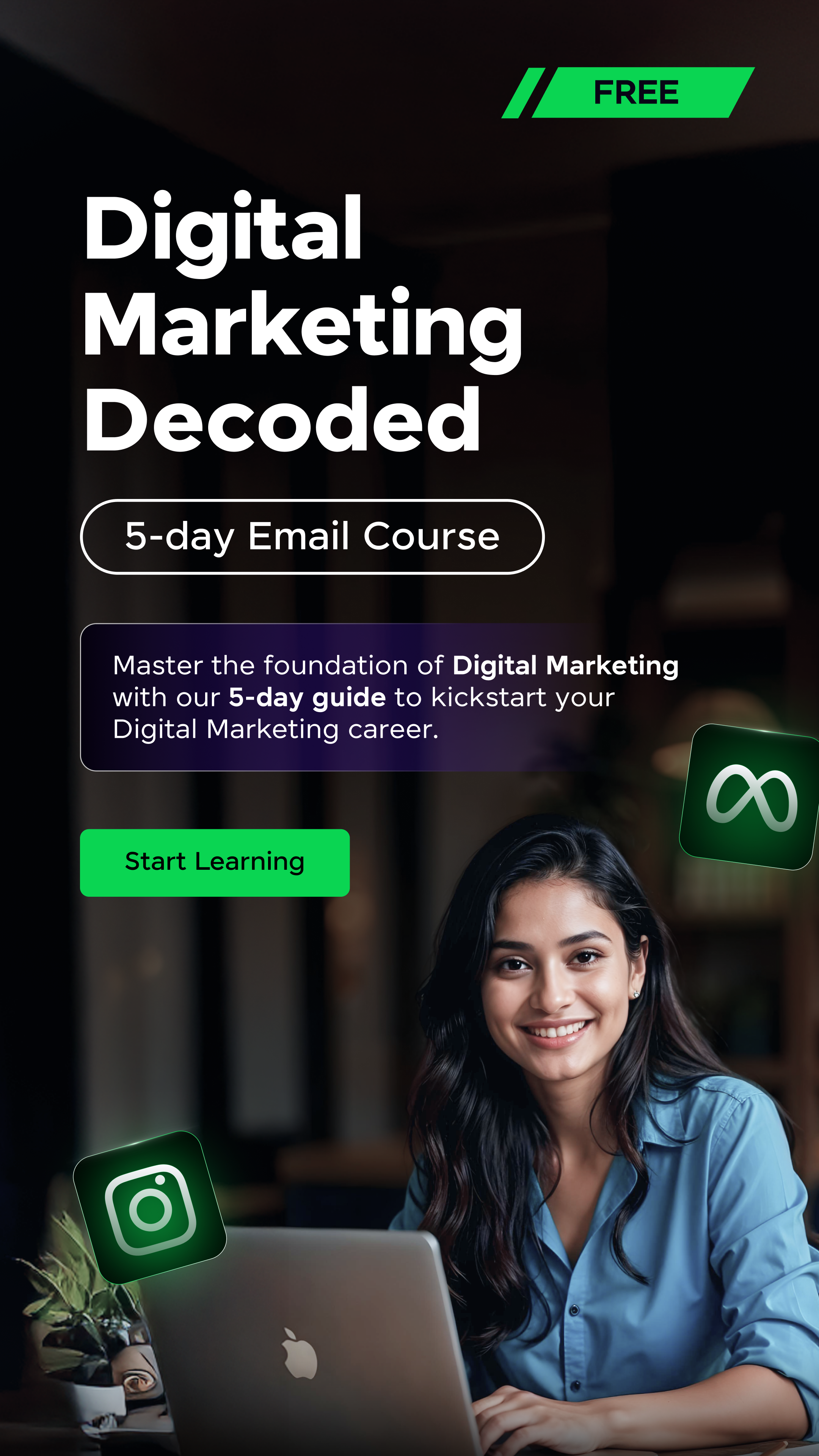























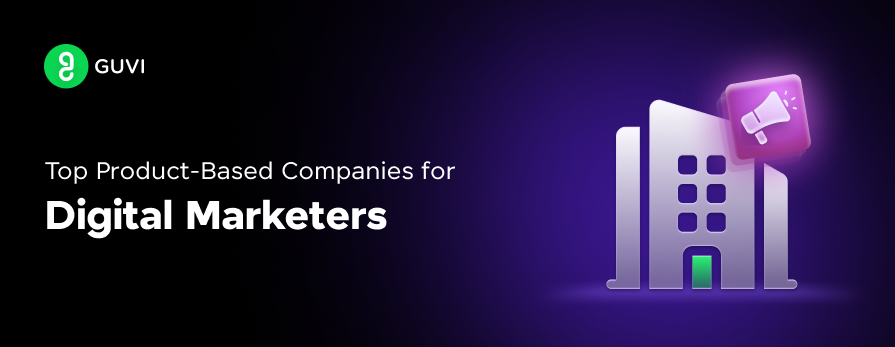




Did you enjoy this article?